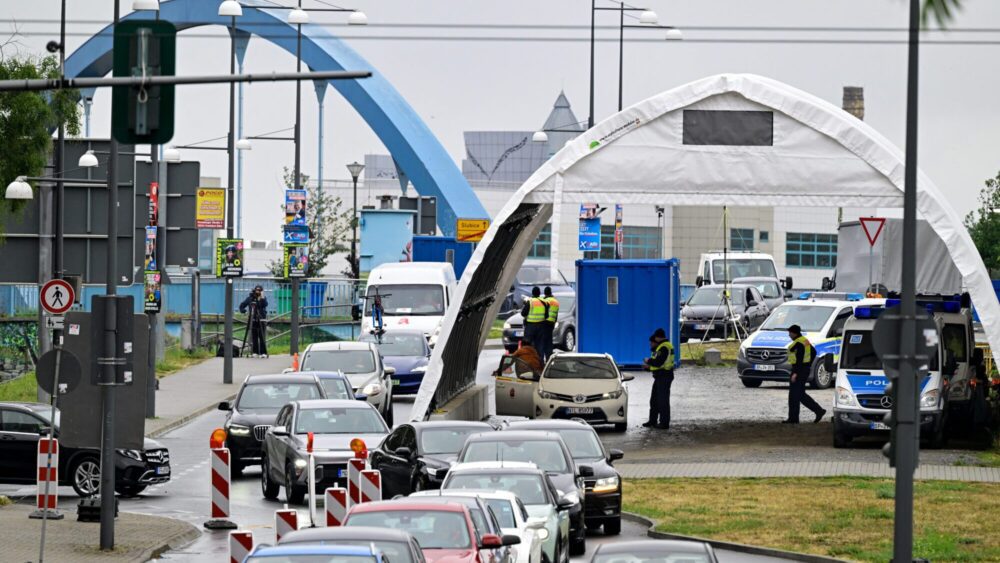
German police officers controlling the traffic flow from Poland across the “Bridge of Europe” in Frankfurt (Oder), eastern Germany
John MACDOUGALL / AFP
A week after the implementation of new entry checks at all land borders, Germany’s police union (GdP) reports minimal progress in combating illegal migration. Migrants and smugglers are managing to avoid the checkpoints, and officers are lacking up-to-date equipment.
“The arrests of illegal entrants and smugglers remain relatively low, while the number of individuals seeking protection and asylum continues to be high,” Andreas Roßkopf, chairman of the police union (GdP) for the federal police told RND. However, the federal police have not yet been able to say how many people were turned away at the new border controls in the first week.
Bus companies have begun routing around the checkpoints, Roßkopf said, and there is a significant shortage of modern mobile checkpoints, cameras, and lighting.
“Autumn and winter are just around the corner and the authorities must now urgently look at how they can create working conditions that are reasonably acceptable,” said Roßkopf.
NRW Federal Police spokesman Jens Flören, however, was satisfied with the first week of border controls. “We are very, very pleased with how the checks have started,” he said, adding that the partially civilian presence of police allows them to go largely unnoticed by road users.
While quite a few people have been arrested because of the new border controls, they have not been illegal immigrants, but drug dealers and other criminals attempting to evade law enforcement in other countries—more of a welcome side-effect than a fulfillment of the intended goal.
Deutsche Bahn reports that border checks on the ICE from Belgium do not happen until after the first stop on German soil, between Aachen and Cologne, meaning anyone attempting to enter Germany from Belgium has a good chance of being able to do so undetected.
The German government implemented the temporary border controls on September 16th in an attempt to protect the country from “the acute dangers posed by Islamist terror” and cross-border crime. Interior Minister Nancy Faeser motivated the measure.
